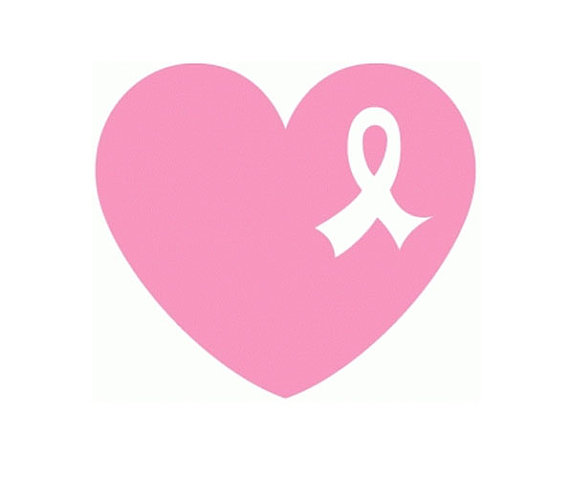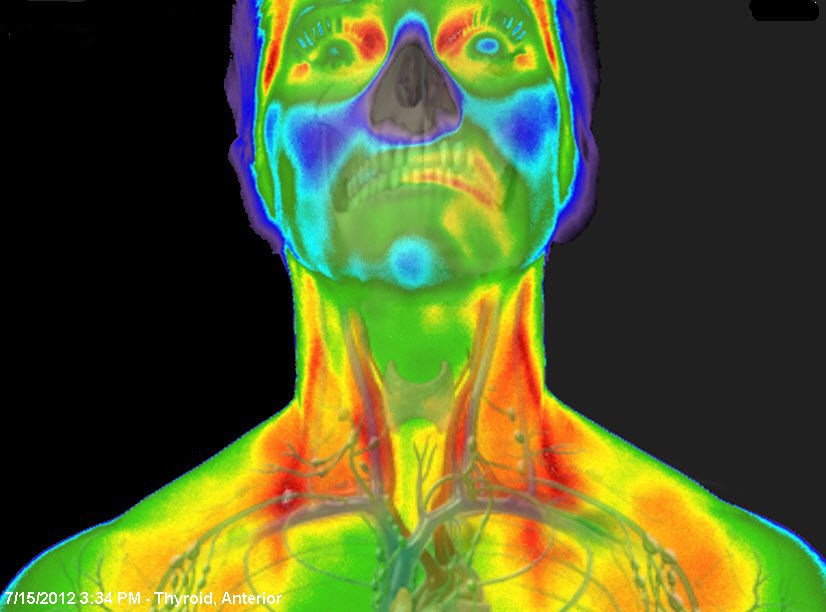This summer is a hot one in Michigan, folks. With temps soaring well into the 90’s, most people seek out ways to spend their sizzling days near water. Whether you’re in a pool, at a beach, on a boat, or tubing down a river, the humidity isn’t the only thing we battle. The heat is up, we’re sweating more, and the social settings have caused mindfulness to take a backseat to mindlessness and self-sabotage. Alas, there’s hope. With a little self-control and attention to your body’s cues, these tips to staying healthy all summer long will keep you feeling your best well into September.
Hydration is KEY
Drink lots of water—I know, duh, right? You’d be surprised by how many people forget to do just that in the summer months. Hanging around or in a cool body of water isn’t enough. You should always keep your body hydrated, inside and out, but in warm climates and summer heat, the body needs more. Seems easy enough, but for those already struggling to keep up their intake in a regular climate, this can be a challenge. The trick to a healthy summer and proper hydration is to know your body and take action:
-
Know the signs of dehydration
I experienced a little dehydration for myself recently. We spent the morning preparing to head out to the boat. I had my morning coffee and then I went straight to work, packing and prepping food. By the time we’d pulled into the marina, I felt sick to my stomach. I had enough energy to say I didn’t feel well and that was it. At first I was a little nervous that I was coming down with something. After a little rationalization and common sense, however, I remembered that I had been awake for five hours and hadn’t consumed a single ounce of water (no, coffee does NOT hydrate you). After slooooowly hydrating myself with a bottle of room-temperature water (no slamming—it’s not a race), I was back to my normal healthy self. Yes, with everything I know, I still slip from time to time.
Other signs of dehydration include dry, irritated, inflamed, itchy, or sensitive skin; headaches or dizziness and/or fatigue; muscle cramps, rapid breathing, fainting, and not urinating (or having very dark yellow urine).
*If you’re experiencing any of these symptoms, the simple solution is to get out of the heat and drink plenty of water. If your dehydration is severe, call 911.
-
Check your urine
A good measurement of hydration is the color of your urine. Pale urine, similar to the color of straw, is a sign of good hydration. A dark yellow or amber color means you may have mild to severe dehydration, while darker urine is a sign that you definitely need more water. Certain medications and health conditions could also affect the color of your urine. In any case, if you’re concerned about the color of your urine, it’s time to consult with your health provider.
-
Avoid alcohol, sugary drinks, and/or caffeine
Sorry! Believe me, I’m with you on this one. I love nothing more than having a good glass of wine or a refreshing seltzer drink when I’m bobbing around in the water. It’s a sad fact, but it’s true: Some liquids work against hydration and that includes the summertime favorites. Drinks like coffee, sugary sodas, beer, wine and hard liquor, lemonade, sweet tea, and energy drinks are all culprits. They are loaded with sugar and other ingredients that actually remove water from your tissues.
-
Eat more fruits and vegetables
Fruits and vegetables are packed with electrolytes, which are essential minerals like sodium, calcium, and potassium—all key components in staying hydrated. Some of the most hydrating foods include: celery, watermelon, cucumber, kiwi, bell peppers, citrus fruit, carrots, pineapple, radishes, tomatoes, cauliflower, spinach, berries, and broccoli. Wash them, chop them up, and bring them with you for your summertime activity. Leave the chips behind!
-
Replenish lost fluids
Staying hydrated doesn’t only depend on how much water you to take in, but how much fluid leaves your body. Whether running, biking, hiking, or playing a sport, it’s essential to drink water throughout activities to replenish the sweat leaving your body. Factors to consider are your sweat rate, the humidity, and duration of your activity. Therefore, proper hydration depends on getting enough water before, during, and after exercise. The American Council on Exercise recommends these guidelines before, during, and after a workout. Drink:
- 17 to 20 ounces of water two hours before the start of exercise.
- 7 to 10 ounces of fluid every 10 to 20 minutes during exercise.
- 16 to 24 ounces of fluid for every pound of body weight lost after exercise.
Keep Your Energy Up In The Heat
The summer months can bring overwhelming feelings of sluggishness and fatigue. From the high temps to the never-ending gatherings, June through August can be downright exhausting. There are ways, however, to avoid the heavy-eyed feelings that make you collapse on your couch and make your healthy summer an energized one:
-
SLEEP
Again, kind of a duh tip, but busy people on average really do not get enough sleep in the summer. The longer days bring more to do and people find themselves staying out later and pushing bedtime out further. This is where mindfulness needs to come into play. We need about 7 hours of uninterrupted sleep to feel our very best while we’re awake. Social events, longer days, and bad eating habits can really hinder our nightly routines. How can you prevent this? Plan ahead. Know tomorrow’s schedule, but more importantly, remember your own body’s habits. If you’re used to waking up at 6:00 a.m., even if you go to bed at midnight, you’re probably going to wake up at 6:00 a.m.
-
Eat smaller meals every two hours
Throw out that 3-large-meals-per-day habit and try to eat 6 smaller meals instead. Why? Feeding your body smaller portions frequently throughout the day is great for your energy levels. Simply put, eating every two hours means you always have food in your system—AKA fuel to burn to give you energy. Believe me, you’ll notice a difference in your digestion. It takes more work for your GI tract to break down larger amounts of food. If you constantly feel sluggish and fatigued after meals, you’re most likely eating too much and overworking your poor digestive system.
-
Vitamin B-12
The B-12 vitamin is one of eight B vitamins that help the body convert the food you eat into glucose, which gives you energy. It also keeps your body’s nerves and blood cells healthy and helps prevent a type of anemia that can make you weak and tired. Vitamin B12 is naturally found in animal products, including fish, meat, poultry, and eggs. You can also choose to get it in supplement form, but BEWARE, do your research and make sure you’ve chosen a third-party tested supplement.
-
Calm Down
Summertime brings more events and more to do. It seems like there is always a shower, wedding, open house, reunion or some kind of gathering on the calendar. This means you’re not only doing more but spending more, as well. It also means you’re not doing what you want to do on your own valuable time. Stress makes you anxious and overwhelmed, which takes up energy, leaving you feeling sluggish and fatigued. While we’ll never get rid of the events, there are a few things to include in your daily routine to bring the stress levels down: meditation, yoga, going for a walk, riding a bike, gardening, reading a book, relaxing your own way, or simply understanding that you don’t have to accept every invite—it’s okay to say no.
-
MOVE
Hello, do I really need to say this over and over again? I will this very last time: Regular exercise is important for reducing your risk of developing chronic diseases like heart disease, diabetes, and obesity. Sedentary lifestyles are BAD for your health. In every way. BAD. If you haven’t moved and feel exhausted, this may seem counterintuitive as moving your body can feel like the last thing you want to do, but get up and MOVE. I’m not talking about crazy exercise here. A walk, bike ride, or a small yoga routine are all superior pick-me-ups. Try it. You’ll see.
-
Avoid Sugar
Sugar makes you crash. Period. While it does give you a short-term energy boost, it will wear off quickly as high-sugar foods cause blood sugar to rise quickly. This results in your body releasing large amounts of insulin to bring blood sugar levels back down, followed by a slump or commonly known as the “sugar crash.”
Healthy Eating
You might recall my blog from last year, Healthy Summer Cocktails and Foods, where I share healthy tips on summer eating and (careful!) drinking. It’s a tricky time when it comes to summertime and food, but there are ways around the summer bloat and inflammation.
-
Don’t overindulge
Summer is a three month long social event. Or at least it can be. Whether you’re on a boat, at the beach, at a BBQ or camping, it’s easy to sit over food and take bite after bite. It’s a mindless action. For this healthy summer, be mindful of portion sizes in social settings. Listen and pay attention to your body’s cues. If you’re hungry, eat. When you’re not hungry, PUT THE FOOD AWAY. Have some water instead. Distract yourself with good conversation. Push the cooler out of reach and jump into the lake or pool. You can do it!
-
Eat the right foods
It’s important to make sure you eat the proteins, healthy fats, and good carbohydrates your body requires to function properly. Keep in mind that this is different for everybody. Remember? No two bodies are alike. What works for me probably won’t work for you. On top of that, people with more active lifestyles require more food than people with sedentary lifestyles. Know your body. Pay attention to what works and what doesn’t. Trust me, you’ll know the difference. Be smart about cold treat choices when satisfying your sweet tooth. Try and avoid those cute ice cream shops on every corner and look for healthier alternatives to the typical sugar-laden summer treats. If you simply must stop to fulfill some nostalgic trip, try sugar-free ice cream or a sugar-free sorbet in a cup.
-
Hit the local farmers market
It’s easy to eat fresh, locally and organically grown food when fruits and vegetables are as abundant as they are during summer. Even better, when produce is in season and available, it’s affordable. Remember, when food is in season, it’s better for you. Fresh, locally grown food is filled with all the nourishment and nutrients needed to help you thrive this summer. Get creative and replace those prepackaged, preservative-laden foods with easy, healthy summer recipes.
-
Cook more
I know this is difficult, but cooking your own meals using ingredients from your own fridge and cupboards really is the best thing you can do for yourself. I, too, spend a lot of time out and I love a good night with friends. But at home, I know all the who’s, what’s, when’s, and how’s to my meal because I did it. There’s nothing hidden in there. It’s filled with lean meats and organic veggies. There aren’t any dirty oils or processed ingredients. It truly is better. In the summer months, make a plan. Meal prep. Designate ONE day per week to spend eating out and take note of the difference. I promise you’ll feel it. *Looking for a good summer recipe? Check out two of my favorite Food Babe’s creations, here. Not to toot our own horn, here, but TOOT! Have you checked out Forum Health Clarkston’s Pinterest Boards for healthy eating? You should. You’ll never get bored with these healthy recipes. We’ve made it so easy for you: TOOT.
Final Thoughts
While summer is without a doubt one of the best times of the year, it can also be the most damaging. It’s important to be mindful and pay attention to your own body’s cues while doing your favorite activities. It’s very simple: Do you want to head into September with weight gain, bloat, and inflammation? Or do you want to leave your healthy summer and start the fall season off right? You choose! Don’t know where to begin? At Forum Health Clarkston, our proven process will find the right plan for your body! Sign up for our free Meet & Greet to learn how our experts can help you!
References:
American Council on Exercise, “Healthy Hydration,” acefitness.org.
Dr. Axe (2017) “How to Stay Hydrated in 4 Steps,” Dr. Axe.







